
Redesigning Care Through Service Excellence, Technology, and Disruptors
There is still time to register and join your colleagues at ABQAURP’s Annual Health Care Quality & Patient Safety Conference on October 19-20 at the Sheraton Sand Key Resort in Clearwater Beach, FL.
Come together as we develop strategies to integrate technology, disruptive delivery models, and service excellence into practice to address the challenges of social determinants of health, improve the population health of communities served, and expand opportunities and patient outcomes for providers.
Register Today!
Reserve Your Hotel Room – Space is Limited
We encourage you to make your hotel reservations as soon as possible. Our discounted room rate of $189 per night is first-come, first-served. Don’t miss this opportunity to stay at the conference location. The rate includes free parking, local transportation, Wi-Fi, and NO additional resort fees. Discounted rate ends on September 18, 2023, or pending availability. Be sure to identify yourself as an ABQAURP conference attendee to receive the room rate.
Reserve Your Room!
2023 Annual Conference Featured Session
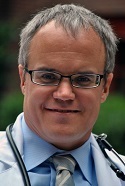 Geriatric Emergency Departments Improving Quality of Care and Return on Investment Geriatric Emergency Departments Improving Quality of Care and Return on Investment
Kevin Biese, MD
Associate Professor of Emergency Medicine and Internal Medicine
University of North Carolina at Chapel Hill School of Medicine
Geriatric emergency departments (GEDs) incorporate specially trained staff, assess older patients in a more comprehensive way, and take steps to make sure the patient experience is more comfortable and less intimidating for older adults. All of this allows for a better care experience for older adults while in the emergency department (ED) and safer transitions to a community setting for those who do not need medical admission. A GED has four key areas of differentiation from a traditional ED. First, physicians and nurses receive additional education in geriatric emergency medicine that provides added expertise in the emergency care of older adults. Additional education focuses on:
- Geriatric-specific syndromes and concepts (e.g., atypical presentation of disease changes with age, transitions of care) relevant to emergency medicine
- Clinical issues nearly exclusive to geriatric patients (e.g., end-of-life care, dementia, delirium, systems of care for older adults)
- Issues common to all ED patients but focused on the unique factors found in older adults (e.g., trauma in older adults, cardiac arrest care for the geriatric patient)
Second, GEDs have enhanced screening processes. Patients receive additional screenings that can quickly uncover physical or mental health risks that are more common in older adults. For example, screening tools uncover geriatric syndromes (like falls, polypharmacy, delirium, and dementia) as well as social vulnerabilities (like food scarcity or elder mistreatment).
Third, GEDs are often supported by interdisciplinary team members that help provide enhanced community connections for the most vulnerable older adults, as well as focus on transitions of care. Team members can reach out to the local agency on aging, services like Meals on Wheels, physical therapy providers, and home health agencies, or help facilitate direct transfers to a skilled nursing facility (SNF) when an inpatient admission is not required.
Finally, a GED is usually not a separate space or standalone ED, but rather has structural enhancements to the physical environment that make the experience more conducive to older adults. Oftentimes this includes a designated, quieter, cordoned-off space within an ED, light dimmers, non-stick flooring to minimize falls, comfortable space for caregivers in the ED, or the inclusion of handrails.
In summary, the goals of GEDs are to improve transitions of care, avoid unhelpful hospital admissions or readmissions, identify unmet needs, and improve care quality and the patient experience. GEDs do this through the use of transitional care nurses or social workers by:
- Identifying underlying geriatric syndromes and social vulnerabilities through enhanced screenings
- Intervening upon findings
- Connecting to social services
- If appropriate and feasible, transitioning to home or community-based settings (hospital at home, primary care provider, etc.)
Though research in improving emergency care for older adults has been underway for decades, wide-scale adoption of geriatric emergency medicine care processes is relatively new. In 2013, the Geriatric ED Guidelines were created. In 2018, ACEP launched the Geriatric Emergency Department Accreditation program, which established criteria for three levels of GED accreditation. There are now over 425 GEDs in the US, along with a growing presence internationally.
There is a growing body of literature that supports the outcomes of GEDs to lower cost, improve quality, and improve the patient experience:
- Up to 16.5 percent reduced risk of hospital admission1 and 17.3 percent of readmission2
- Up to $3,202 savings per Medicare beneficiary after 60 days3
- Decreased odds of 30- and 60-day fall-related ED revisit with PT services4
- Significant improvement of clarity of discharge information and perceived well-being5 as well as recent findings demonstrating overall substantially improved patient experience in high-level GEDs, even during COVID (in press)
- Multiple studies showcasing improved experience across a variety of interventions 6
GEDs are a proven example of emergency medicine facilitating higher-value care for complex patients. They decrease the risk of unnecessary hospital admissions, improve patient experience in the ED and care transitions to the community, and decrease the need for repeat ED visits and rehospitalizations by addressing underlying risk factors (such as falls risks, polypharmacy, elder abuse, caregiver fatigue, etc.) that may have precipitated the ED visit in the first place. EDs need to lead the charge to value-based care (and be supported for doing so), and GEDs demonstrate how this is possible.

Learn more at Dr. Biese's session at ABQAURP's Annual HCQ&PS Conference on Friday, October 20, 2023. Register at: www.abqaurp.org/AnnualConference.
1Hwang, U., Dresden, S.M., Rosenberg, M.S., Garrido, M.M., Loo, G., Sze, J., Gravenor, S., Courtney, D.M., Kang, R., Zhu, C.W., Vargas-Torres, C., Grudzen, C.R., Richardson, L.D. and (2018), Geriatric Emergency Department Innovations: Transitional Care Nurses and Hospital Use. J Am Geriatr Soc, 66: 459-466. https://doi.org/10.1111/jgs.15235
2Dresden SM, Hwang U, Garrido MM, Sze J, Kang R, Vargas-Torres C, Courtney DM, Loo G, Rosenberg M, Richardson L. Geriatric Emergency Department Innovations: The Impact of Transitional Care Nurses on 30-day Readmissions for Older Adults. Acad Emerg Med. 2020 Jan;27(1):43-53. doi: 10.1111/acem.13880. Epub 2019 Dec 1. PMID: 31663245.
3Hwang U, Dresden SM, Vargas-Torres C, et al. Association of a Geriatric Emergency Department Innovation Program With Cost Outcomes Among Medicare Beneficiaries. JAMA Netw Open. 2021;4(3):e2037334. doi:10.1001/jamanetworkopen.2020.37334
4Lesser A, Israni J, Kent T, Ko KJ. Association Between Physical Therapy in the Emergency Department and Emergency Department Revisits for Older Adult Fallers: A Nationally Representative Analysis. J Am Geriatr Soc. 2018 Nov;66(11):2205-2212. doi: 10.1111/jgs.15469. Epub 2018 Aug 21. PMID: 30132800.
5Guttman A, Afilalo M, Guttman R, Colacone A, Robitaille C, Lang E, Rosenthal S. An emergency department-based nurse discharge coordinator for elder patients: does it make a difference? Acad Emerg Med. 2004 Dec;11(12):1318-27. doi: 10.1197/j.aem.2004.07.006. Erratum in: Acad Emerg Med.2005 Jan;12(1):12. PMID: 15576523.
6Berning MJ, Oliveira J E Silva L, Suarez NE, Walker LE, Erwin P, Carpenter CR, Bellolio F. Interventions to improve older adults' Emergency Department patient experience: A systematic review. Am J Emerg Med. 2020 Jun;38(6):1257-1269. doi: 10.1016/j.ajem.2020.03.012. Epub 2020 Mar 12. PMID: 32222314.
CHCQM Diplomate Achievement Award Winner
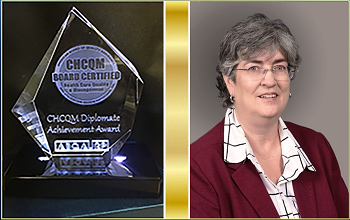
ABQAURP is pleased to announce the selection of Kimberly K. Garner, MD, JD, MPH, FAAFP, CHCQM as the recipient of the 2023 CHCQM Diplomate Achievement Award!
The Award recognizes a Diplomate that embodies the values of the medical profession through leadership, service, excellence, and integrity; demonstrating their commitment to advancing our mission to improve the quality of health care. The bi-annual award application identifies leaders whose initiatives have led to measurable change in patient safety outcomes, provider and/or patient engagement, and overall quality improvements.
Dr. Kimberly K. Garner is the Rehabilitation and Extended Care Integrated Clinical Communities Lead for the South Central Veterans Health Care System Network in Little Rock, AR. She served as Project Lead for the award-winning quality initiative, the Veterans Health Administration Enterprise-Wide: Advance Care Planning via Group Visits.
Advance Care Planning via Group Visits (ACP-GV) engages Veterans, their families, and caregivers in advance care planning by facilitating group discussions to prompt conversation about personal experience and encouraging participants to actively participate in the planning of future health care needs. ACP-GV’s objectives are to engage and enable Veterans to communicate future health care preferences and to improve choice and timeliness to advance care planning (ACP) discussions, especially in medically underserved rural areas.
Join us for the CHCQM Diplomate Achievement Award presentation on October 20, 2023, at our Annual HCQ&PS Conference.
Read more!
Thank you to all of our Diplomates that applied for the Award. Click here to read more about their projects.
Announcing the 2022 Membership Referral Winner
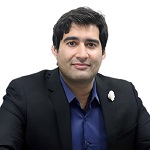 We are pleased to announce that Mr. Umar Amjad is our newest Membership Referral Drive winner. We are pleased to announce that Mr. Umar Amjad is our newest Membership Referral Drive winner.
Our sincere thanks to Mr. Amjad for his dedication to Health Care Quality and Management (HCQM)! Member participation and influence help ABQAURP to foster the concepts of health quality and safety throughout the health care system. Improved patient care is the result of our combined efforts.
Mr. Umar Amjad is an accomplished individual with more than a decade of experience working with Joint Commission International-accredited tertiary care hospitals in Pakistan. He has worked in various Quality and Patient Safety leadership positions and currently serves as Chief Quality Officer at Pakistan Airforce Hospitals.
Mr. Umar has worked in national advisory roles for development of health care quality standards and their implementation with the World Health Organization (WHO), Pakistan Medical & Dental Council, and Provincial Healthcare Commissions. He holds a Master in Business Administration (MBA) degree but identifies his mission in spreading awareness of quality and patient safety amongst the health care professionals of Pakistan.
He was certified in HCQM in 2019. We are proud to have him and his colleagues as members!
You could be next! 2023 Membership Referral Drive
Refer your colleagues! Your involvement in this year's membership development program plays an essential role in the vitality of your organization. Diplomates and Members are our most valuable resource! To say thanks and recognize your commitment to quality, ABQAURP credits your account $25.00 for each referral that becomes a Professional Member or sits for the HCQM Exam. The member who recruits the most is awarded a Member Spotlight in the ABQAURP newsletter, a $500 Visa Gift Card, and registration for the annual conference with CME/CE.
Don't miss this opportunity to advance your association's goals and save money on your annual fees!
Learn more about the Membership Referral Program Details.
2023 HCQM Certification Exam - Deadline Extended to July 1st!
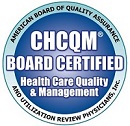 Certification in Health Care Quality and Management (HCQM) is for physicians, nurses, and other health care professionals who are committed to Health Care Quality and Patient Safety. Validate your expertise by earning the Certified in Health Care Quality and Management (CHCQM) credential! Certification in Health Care Quality and Management (HCQM) is for physicians, nurses, and other health care professionals who are committed to Health Care Quality and Patient Safety. Validate your expertise by earning the Certified in Health Care Quality and Management (CHCQM) credential!
The 2023 HCQM Exam window is open from March 1 through September 15, 2023. There is still time to apply for your choice of date, time, and location. Remote testing is available through ProProctor™ - a remote testing platform that allows candidates to test anywhere, at any time.
Additional Sub-Specialties are available:
| |
-Case Management
-Managed Care
-Patient Safety/Risk Management |
|
-Physician Advisor (physicians only)
-Transitions of Care
-Workers' Compensation |
|
Click Here for Details and to Register!
New 2023 Release!
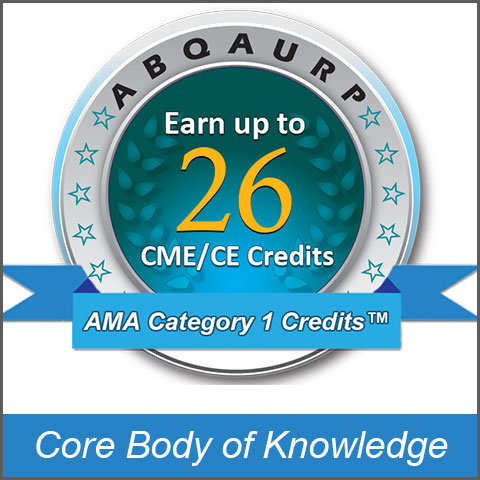 HCQM: A Review of the Core Body of Knowledge (CBK) Online Course HCQM: A Review of the Core Body of Knowledge (CBK) Online Course
Prepare to become a quality leader or refresh your knowledge by completing the HCQM: A Review of the Core Body of Knowledge (CBK) online course; a primer for the Health Care Quality and Management (HCQM) Certification Exam. Learn the basics of health care quality, risk management, accreditation, patient safety, and more. Most examinees take advantage of the CBK course to fulfill the education requirement for the exam. While the course is a valuable overview of HCQM, it is not required and does not ensure successful completion of the HCQM Exam.
Read the course details and order.
New Course!
 The Physician Advisor in Health Care Quality and Management The Physician Advisor in Health Care Quality and Management
The role of the physician advisor is evolving in today's health care systems. This course describes the role of the physician advisor in health care quality and management and the physician leadership roles that can be fulfilled throughout the care continuum. These roles include transitions of care support, interdisciplinary team management and communication, determining patient status and level of care, participating in Medicare appeals and medical necessity reviews, and many more facets impacting the quality of care that patients receive.
This standalone course is also included as a portion of the Core Body of Knowledge (CBK) online course. The course may be taken individually to earn incremental CME/CE credits, recertification credit, or credits toward the requirement for the Physician Advisor sub-specialty designation.
Order today!
CHCQM Digital Credentials!

Health Care Quality & Management Certification
Issued by American Board of Quality Assurance and Utilization Review Physicians© (ABQAURP)
 Earners who have achieved certification in HCQM are deeply committed to patient safety, health care quality, and effective care. Those certified in HCQM demonstrate their superior ability to critically evaluate industry literature, identify evidence-based best practices, and make recommendations that balance appropriateness of health care services with cost and quality. HCQM Board Certification addresses the need for effectiveness, efficiency, equity, safety, and timeliness. Earners who have achieved certification in HCQM are deeply committed to patient safety, health care quality, and effective care. Those certified in HCQM demonstrate their superior ability to critically evaluate industry literature, identify evidence-based best practices, and make recommendations that balance appropriateness of health care services with cost and quality. HCQM Board Certification addresses the need for effectiveness, efficiency, equity, safety, and timeliness.
Last year, Diplomates were issued CHCQM digital credentials through Credly. There is still time to "Accept" your badge to download and utilize your CHCQM and Sub-Specialty digital credentials.
This electronic representation of your hard-earned credential will be displayed on the Credly website for users to share with colleagues and employers. You can easily share this on your social media platforms like LinkedIn. This program replaces the Diplomate Logo program and eliminates the need for you to apply and submit forms to enable your logo. An invitation to accept your credential is automatically sent to all candidates that successfully complete the HCQM Certification Exam, renew their certification bi-annually, or earn a sub-specialty credential during their membership.
To accept your digital credential(s), create a free, secure account at Credly.com. Your CHCQM and any sub-specialty credentials will be available on your Dashboard to accept, share, and download.
If you have questions about digital badge use, visit: https://www.abqaurp.org/ABQMain/CHCQM_Badge_Landing.aspx. If you
did not receive your digital badge notice from Credly, please email us at: abqaurp@abqaurp.org.

Is Your Continuing Medical Education Accredited?
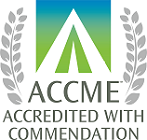 ABQAURP welcomes applications for joint providership of educational activities for continuing medical education credit. ABQAURP accredits a variety of activities including live activities, enduring materials, and more. As an accredited provider, ABQAURP works with each joint provider organization to ensure the accreditation process runs as smoothly as possible. ABQAURP welcomes applications for joint providership of educational activities for continuing medical education credit. ABQAURP accredits a variety of activities including live activities, enduring materials, and more. As an accredited provider, ABQAURP works with each joint provider organization to ensure the accreditation process runs as smoothly as possible.
For more information, please contact the Education Department at (800) 998-6030 or education@abqaurp.org.
|
Follow ABQAURP on Social Networks
Follow us on social media to keep up to date on our announcements, special incentives on our programs and services, and topical discussions from fellow leaders in the health care arena! Share strategies with your peers to cope in this uncertain time.
 ABQAURP LinkedIn Group ABQAURP LinkedIn Group
 ABQAURP Facebook Page ABQAURP Facebook Page |
|